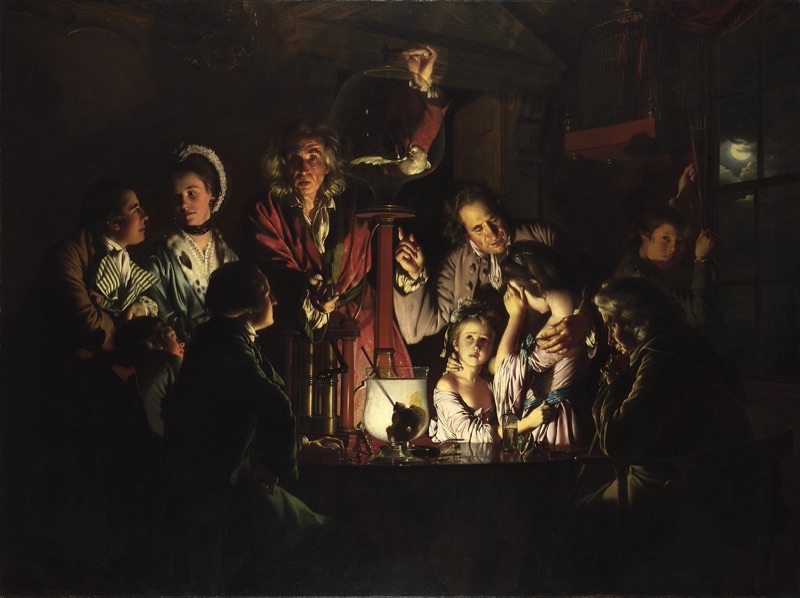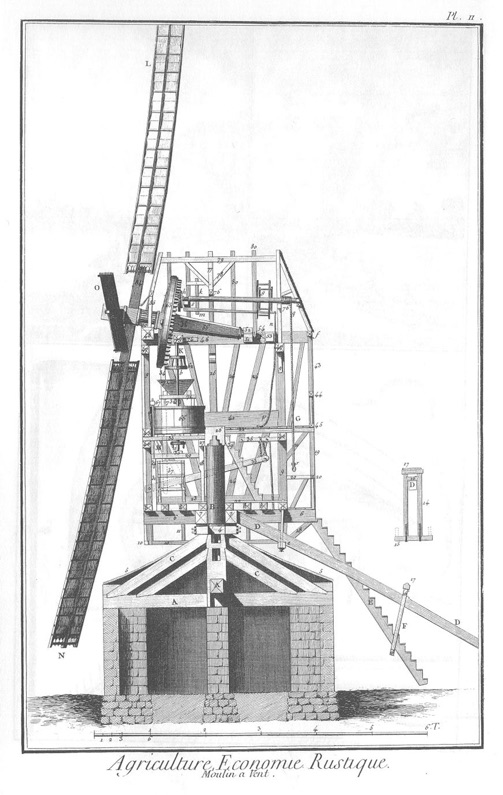Joseph Wright of Derby, Experiment with a Bird in an Air-Pump, 1765
"Windmill," illustration from Denis Diderot (editor), The Encyclopédie, 1751-66
(if this work shows up on the exam, it will be in order to key a discussion of the Encyclopédie as an example of the Enlightenment's project to promote and disseminate knowledge, and as an example of one of the earliest forms of industrialization, wind powered mills.)


The Enlightenment
pre-class prep: review Chu pp. 24-26 from last time's reading
watch YouTube video The Enlightenment
watch YouTube video The Industrial Revolution
discussion questions: Those named for the question below should come prepared to present a short (3-5 minute) response to that question.
(Briar E. and Evan R.) As a review of last time's topic, each of you should find two works other than the ones on the Rococo study guide and in the textbook that exemplify the Rococo period in subject-matter, form/style, and overall intent. (You can search for other works by the same artists that we covered in class or in the text, for example.) Email me a jpeg of the work with the artist's name, title of the work, and date by noon on Tuesday 23 January so I can project the images during class while you explain how the works exemplify the Rococo period in subject-matter, style/form, and overall intent.
people, terms, and concepts: aristocracy, the Ancien Régime, bourgeoisie, peasants, the Enlightenment, the Scientific Revolution, the Industrial Revolution, monarchy, democracy, Denis Diderot, the Encyclopédie (Encyclopedia)
key points:
• What was the Enlightenment? How is it related to the Scientific Revolution, the Industrial Revolution, and the rise of democracy?
• How were Enlightenment values different from those of the old order (the Ancien Régime), which was dominated by religion, agriculture, and the aristocracy?
• How did the Enlightenment help to drive scientific, technological, economic, and ultimately political change over the course of the 18th century?
• What was the Industrial Revolution? How did it change the way people lived and lead to a shift in social (class) power away from the aristocracy and toward the bourgeoisie?
• Later we'll talk about some other consequences of the Industrial Revolution that are discussed in the video above, especially with regard to the worsening living and working conditions of the proletariat or urban working classes.
